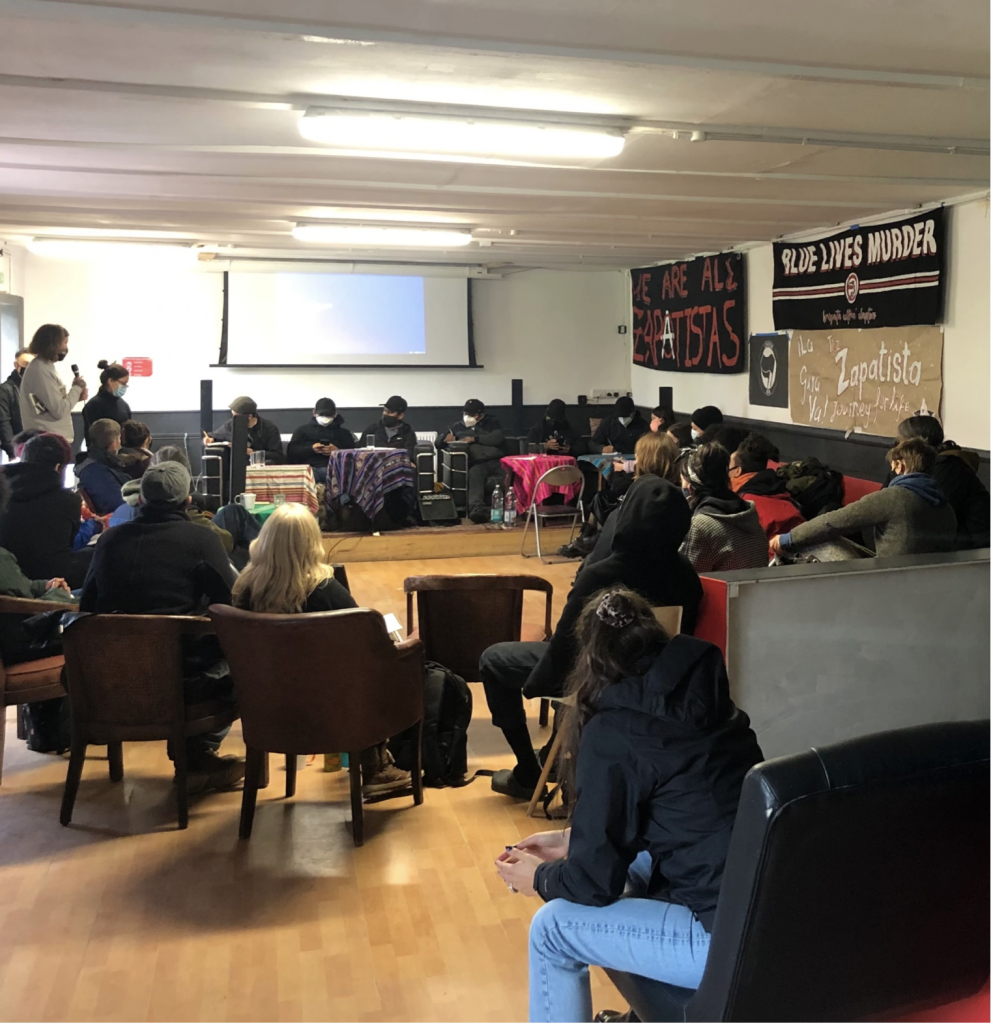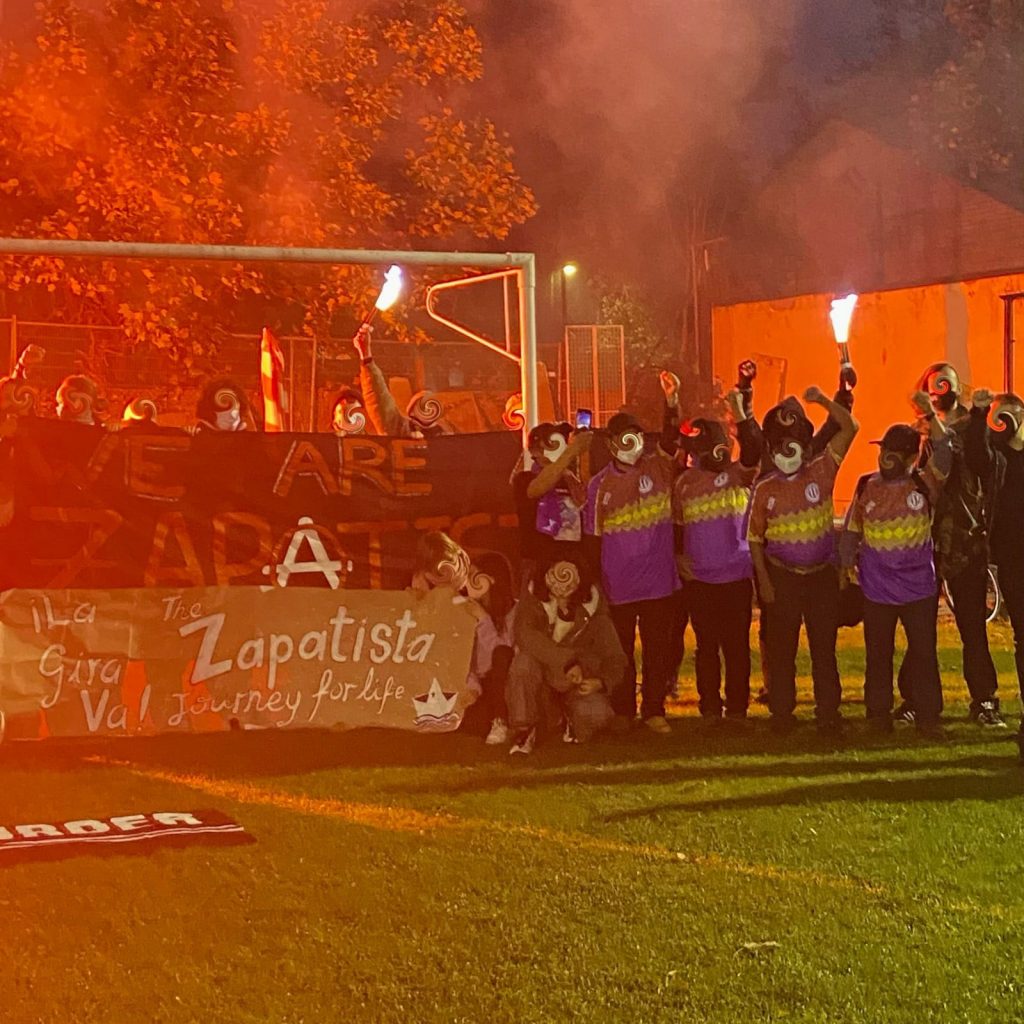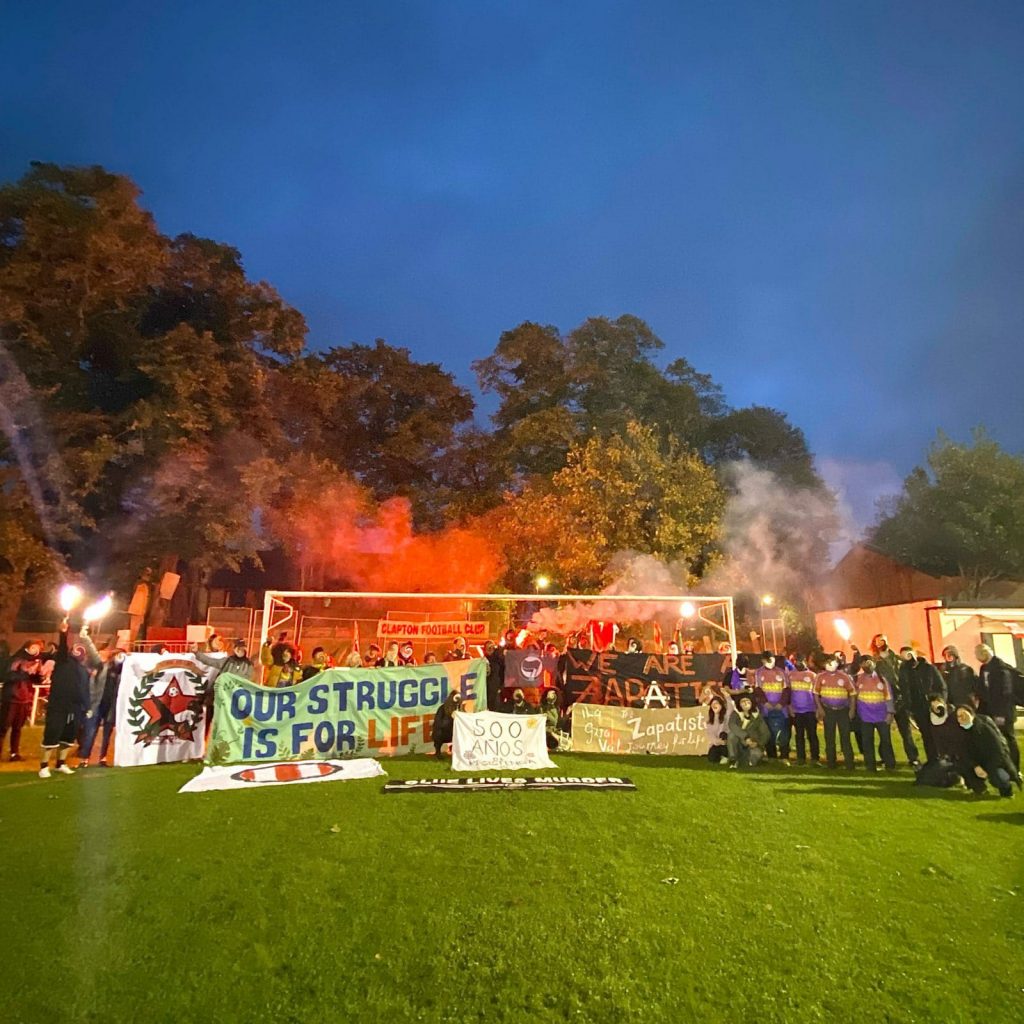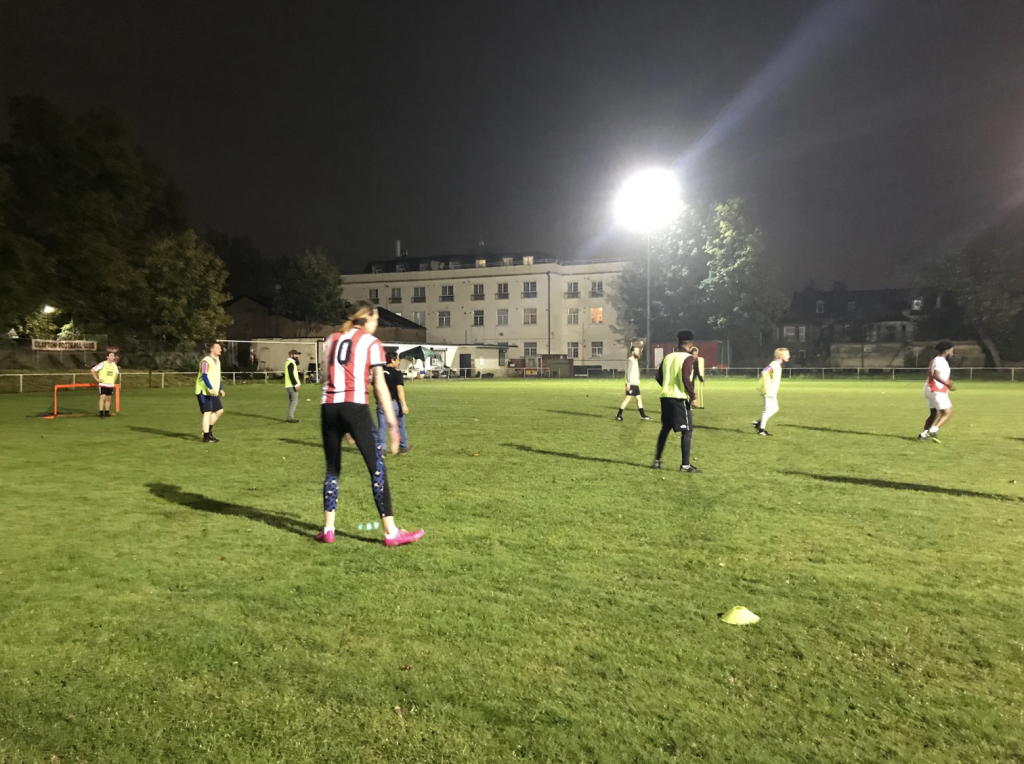A reflection on the Zapatista’s kick-about at the OSD

On the 3rd November 2021, the Brigata Ultrà Clapton, CCFC and the Zapatista Solidarity Network welcomed at the Old Spotted Dog a delegation of Zapatistas that traveled all the way from Chiapas to meet groups and collectives organizing against capitalism in Europe, or what they renamed “Tierra Insumisa” (Unsubmissive Land). The event came after months of organizing and preparation in which our delegates were a part of from the very beginning.

The day started with an assembly, in which different groups organizing in London against gentrification, housing crisis, patriarchy, police brutality, racism, and state violence had the opportunity to share their political practices and to create connections with other groups scattered around the city. The Zap compas were particularly disoriented about the fragmentation of the UK movement and the critical questions they addressed focussed on the ways in which a stronger solidarity network could be established. This reflection was followed by the stories of a rich history of resistance, told by the Zapatista people who lived it. Emotions reached their peak when, after their speech, the Zap started to list every single person who died as a martyr in their struggle for liberation. Each name was followed by a collective response of “Presente!”, signifying that they are still here among us.


Between shiny eyes and strong hugs, the groups slowly started to assemble in the OSD pitch where, in a sky lit only by pyros and flares, all the voices combined in unison through the notes of the Italian revolutionary song “Bella Ciao”. A final collective applause marked the beginning of the kick-about as the Zapatistas joined the CCFC members to play football in the rain, only warmed by the supportive chants of the raucous crowd.

And as they came, they left, planting the seeds of rebellion and resistance in their wake. It is now us that have to nurture these seeds and make sure they blossom unruly!
Until next time!
Combatiente Zapatista. El camino marcará. A los que vienen atrás. Vamos, vamos, vamos, vamos adelante. Para que salgamos en la lucha avante!
About the Zapatistas
On 1st January 1994, the Zapatista Army of National Liberation (EZLN), an indigenous armed organization, declared war on the Mexican Government, demanding “work, land, housing, food, health, education, independence, liberty, democracy, justice and peace”. Their name and political practices draw on the ideology of the revolutionary figure of the Mexican Revolution (1910) Emiliano Zapata, struggling so that “the land should be owned by those who work on them”.
Although the EZLN’s war declaration occurred on the same day as NAFTA’s implementation, the uprising took place in response to over 500 years of ongoing colonial oppression, which was being exacerbated by intensifying privatizations and dispossessions of their land and freedom. Prior to rebelling, the Zapatistas spent over a decade clandestinely organizing and when the insurgency sparked, they stormed six cities in Chiapas (SouthEast of Mexico), occupied government buildings, liberated political prisoners, burnt state records, announced their “Women’s Revolutionary Law”, expelled landowning bosses from haciendas (estates), and exchanged bullets with the Mexican military.
Despite the ongoing counter-insurgency spearheaded by the Mexican Government, the Zapatistas have focused their efforts on living a peaceful life of anti-capitalist, decolonial, collective resistance, concentrated upon recuperating land, mutual aid, and exercising autonomy. The Zapatistas have promoted these principles by centering their indigenous traditions on the practices of horizontal governance, equitable gender relations, anti-systemic healthcare, grassroots education, and agro-ecological food sovereignty. In addition, the Zapatistas are working towards constructing what they refer to as Un Mundo Donde Quepan Muchos Mundos (A World Where Many Worlds Fit), emphasizing the dignity of “other” ways of thinking and practicing life, as well as the importance of music, storytelling, and social reproduction as part of a common struggle.
In January 2021, the Zapatistas announced their “Journey for Life”, or their first trip overseas from the mountains of Mexico and across the Atlantic to reach the shores of Europe. According to the Zapatistas, their journey represents an antithesis to the “encounter” between European colonizers and indigenous populations in the Americas, as this time the indigenous people are “colonizing” Europe. Before coming to Europe, all delegates have been trained for months, thus knowing exactly what they wanted to share and what questions they wanted to ask. By taking part in many events and encounters with local movements, they told each group a detailed version of their history, starting way before the uprising in 1994, stressing the centuries long oppression that formed the basis of their resistance today. They also described their worldviews that are rooted in the indigenous identity and how this translates into their political and social organization today.